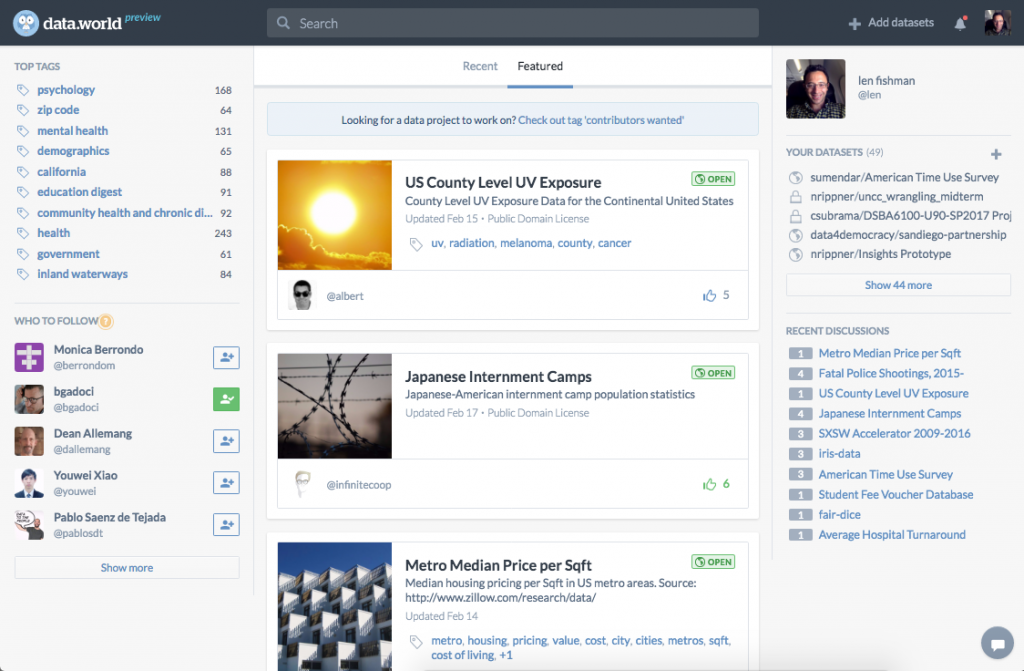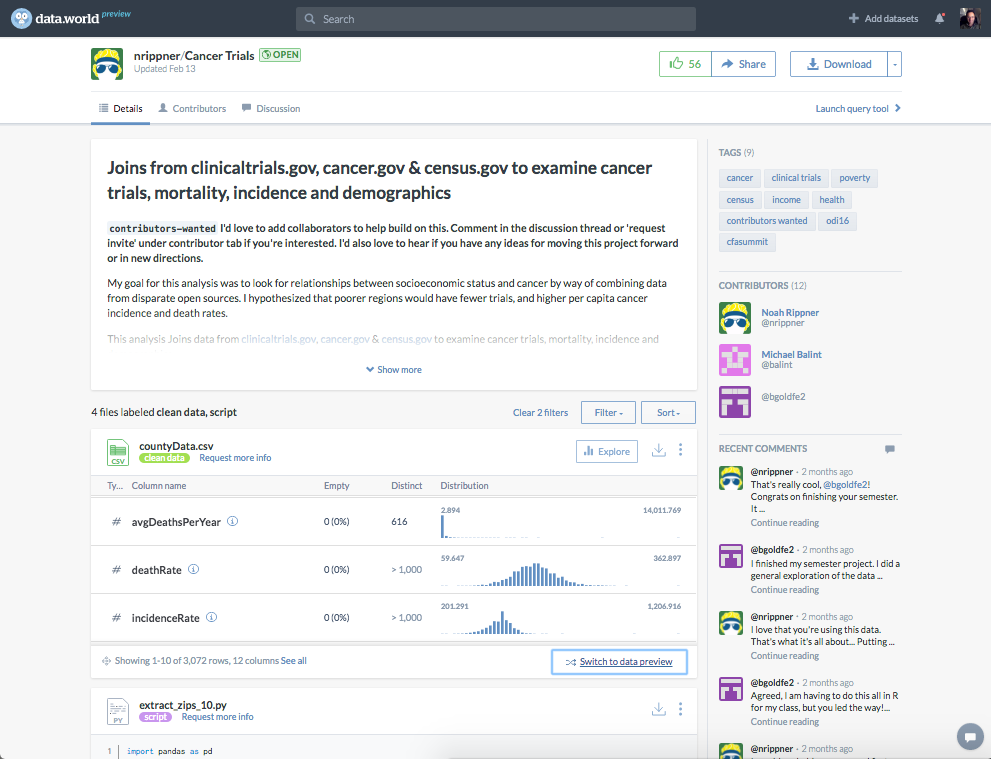March 4th is Open Data Day! Open Data Day is an annual celebration of open data all over the world. For the fifth time in history, groups from around the world will create local events on the day where they will use open data in their communities. Here is a look at how groups can use the data.world platform to identify data sources and collaborate with open data users.
 Although the data.world team will only be present at our local Open Data Day in Austin, Texas, everyone at data.world is proud to support the groups that will participate in events all over the world. The platform will make it easier to collaborate on your data projects, connect with the community, and preserve your work for others to build upon after Open Data Day.
Although the data.world team will only be present at our local Open Data Day in Austin, Texas, everyone at data.world is proud to support the groups that will participate in events all over the world. The platform will make it easier to collaborate on your data projects, connect with the community, and preserve your work for others to build upon after Open Data Day.
For those of you that don’t know us yet, this is central to our vision as a B Corp and Public Benefit Corporation. By setting data.world up in this way, we commit to considering our impact on stakeholders – not only on shareholders – and allow ourselves to publicly report on progress towards our mission in the same way companies report on finances. Our mission is to:
- build the most meaningful, collaborative and abundant data resource in the world in order to maximize data’s societal problem-solving utility,
- advocate publicly for improving the adoption, usability, and proliferation of open data and linked data, and
- serve as an accessible historical repository of the world’s data.
When I reached out to OKI about supporting the event, they suggested that I write some tips on how groups could benefit most from using the platform on Open Data Day and I prepared this short list:
- Data discovery and organization: before Open Data Day, search the platform and identify other data sources that are relevant to a project you hope to work on during the event. Create a dataset that includes hypotheses, questions, or goals for your project as well as data and related documentation
- Explore and query data: as soon as you find a data file, understand its shape and descriptive statistics to determine if the data has the right characteristics for your project as well as query the file directly on data.world using SQL
- Use the API: interact with data via R Studio or Python programs using the data.world API or link a Google Sheet to a dataset (if you prefer working locally in a spreadsheet you can do that too)
- Communicate effectively: as you work on your project, use discussion threads in the project’s dataset as well as annotate data within the platform so group members have maximum context
- Showcase your work: including data, notebooks, analysis, and visualizations in a single workspace to preserve what was achieved and permit the community to build on it without unnecessarily repeating the data prep and analysis completed during the event
If you’d like to see some relevant examples on data.world I would suggest looking at this dataset from the Anti-defamation League, this analysis of Cancer Clinical Trials, and this Data for Democracy project around Drug Spending.
I’d love to see your projects on data.world so tag @len in a discussion on your dataset or invite me to be a read-only contributor. If you have questions, email help@data.world and you’ll get the attention of our whole team as your feedback goes right into our company Slack.
Hopefully data.world helps your group be more productive on Open Data Day and also sustain momentum from the event afterwards.










